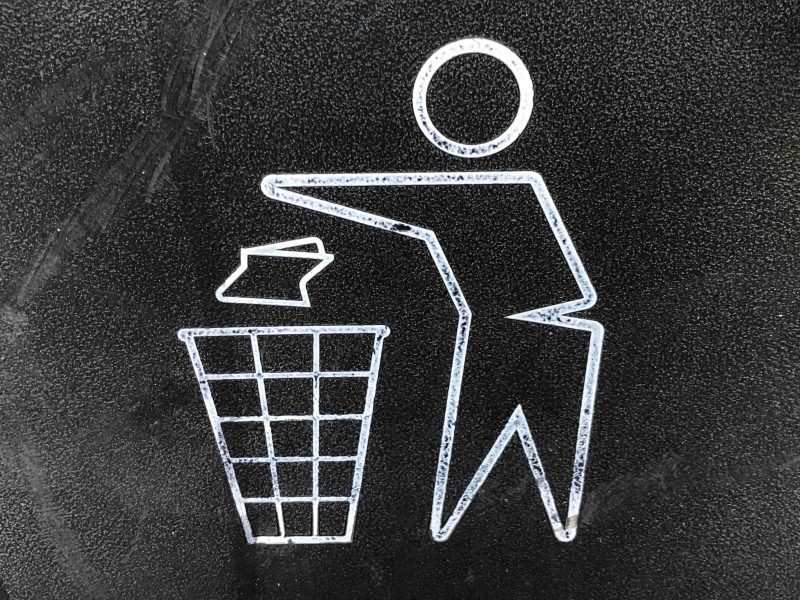
A series on sustainability at KI: Recycling in Sweden (2/3)
Hello everyone and welcome back to my blog! This time me and my friend Jessica will talk about a very relevant topic for prospect but also current KI students: Recycling in Sweden. During this blog we will explain the main reasons why recycling here is so important. We will also orientate you on how to correctly recycle everything at home and at KI! From common waste to special waste category by category.
How to recycle in Sweden
It is well-known that Sweden is one of the most sustainable countries in the world and together with this, this country is on the top 20 of best recycling nations in the world. For this reason, when you arrive in Sweden, or if you already live here, you will notice how important it is to recycle and that special containers for different types of waste are placed all over the country, in every building and every house. Next I will present a table summarizing how you should manage your recyclable waste while living in Sweden:
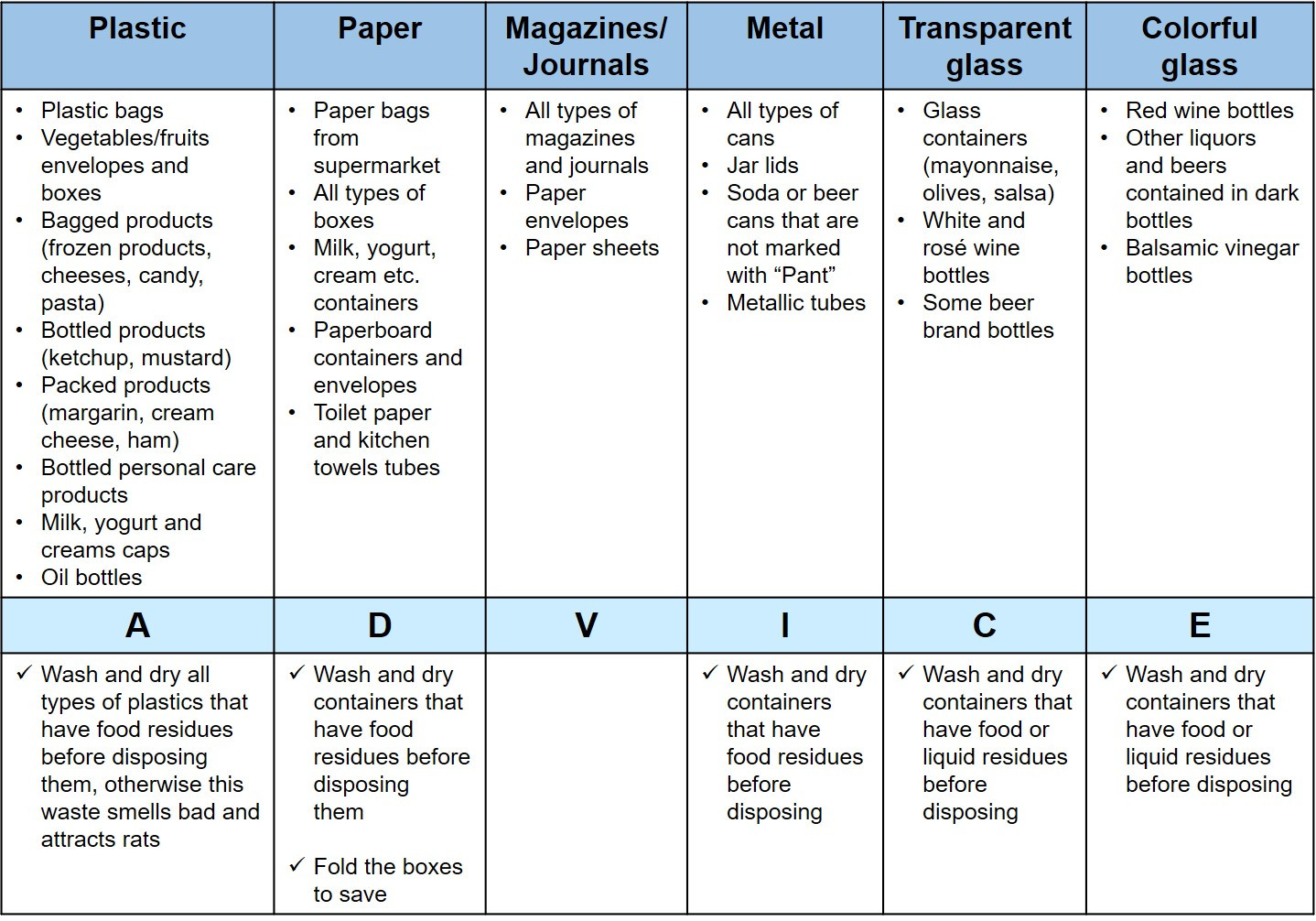
Aline Colonnello
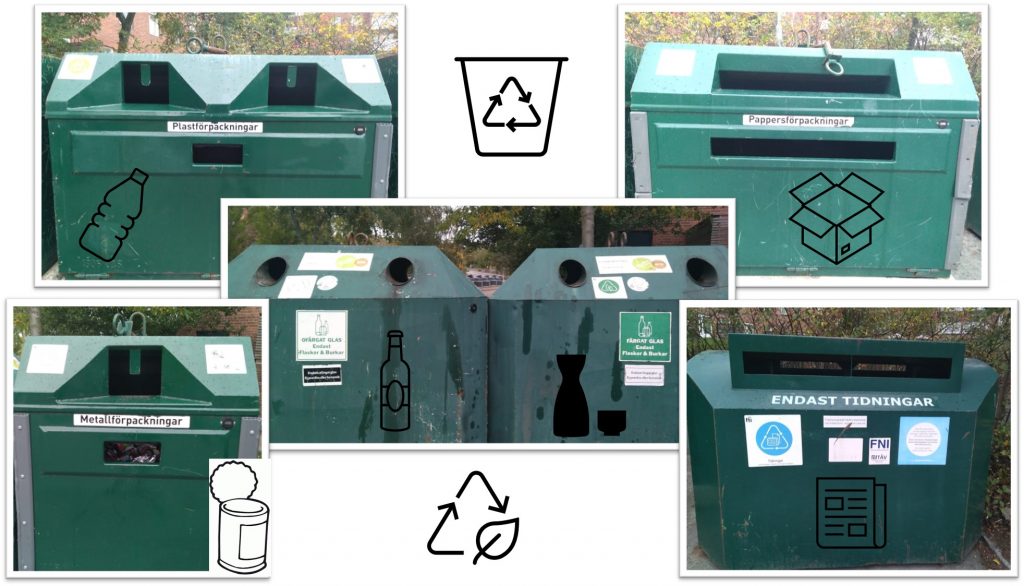
Aline Colonnello
The PANT symbol
To recycle cans, plastic and glass bottles from sodas or other drinks, you must go into your nearest supermarket and place them in a special recycling machine. The most amazing part of this type of recycling is that it gives you money back! YES money back! And… How? Well, most national bottled and canned drinks have an indication in the back part of much money you can get out of it: PANT. Normal size bottles and cans will give you 1 SEK, while big bottles will give you 2 SEK . Finally, you can use this money to do your shopping and save some money!
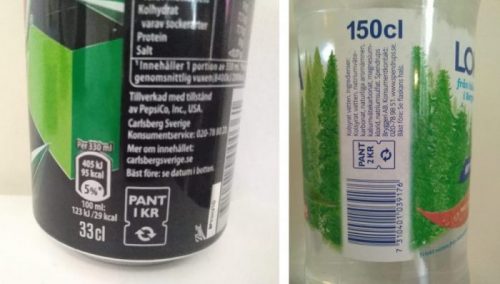
Aline Colonnello
Disposal of special waste
There are always special items that require special recycling processes and therefore special disposal. In this section we will talk about some of the most common types of waste that usually need to be disposed of in a specific place.
Most special waste in Sweden can be thrown away at recycling centers, or återvinningscentral in Swedish. A google search will allow you to find your closest one. At these facilities you can recycle all types of trash from e-waste, batteries, light bulbs, microwaves, refrigerators, mattresses, etc.
If you live in the Stockholm area there is a cabinet called “Samlaren” which can be found in the stores mentioned below. At this place you can return special waste such as batteries, spray bottles, light bulbs, cosmetics and smaller e-wastes such as phones and tablets.
- Bromma: Coop Forum, Ulvsundavägen 187
- Bromma: City Gross, Bryggerivägen 10
- Hammarby Sjöstad: ICA Supermarket Sjöstaden, Hammarby Allé 49
- Hägersten – Västberga: Coop Forum, Västbergavägen 4
- Kungsholmen: ICA Maxi Lindhagen, Lindhagensgatan 118
- Vällingby:Coop Forum, Siktgatan 11, Vinsta
- Tensta: Tensta Centrum, Tenstagången 41
Electronics
Most electronic stores can take in small e-waste under 25 cm. However, some stores only accept e-waste bought specifically from their store. Examples of small e-waste include: batteries, chargers, phones, tablets and laptops. If you are uncertain if a store will accept your waste it is a good idea to contact the shop. They can help you to find a different location in case they do not accept it.
Furniture
The best way to recycle your furniture would be to sell them on Blocket or give them away. Otherwise, it is possible to recycle them at special centers after disassembled. Please, do not leave furniture next to the trash bin! There are companies who can help you move it to the recycling centers if you need. If you wish to recycle your bicycle, this either goes as metal recycling or to a bicycle shop that can take it.
Clothes
Quite often we forget that we should not throw clothes in the normal trash bin. Textiles, like the above products, can be returned at the recycling centers where you can contact the personnel working there to have their help on whether it can be reused or needs to be recycled. If you do not wish to go all the way to a recycling center, most large clothing stores will accept used clothes.
Medicines
Medicines contain all kinds of dangerous chemicals, specifically those ones to alleviate health problems. These should never be thrown in the trash or flushed down the drain. In Sweden, all pharmacies (Apotek) will accept leftover medicine. They take both human and animal (pets) drugs. You can just dump all your hard medicine in a clear plastic bag and your liquid medicine in a tight-lid container and give to them so that they can send it off to properly be disposed of.
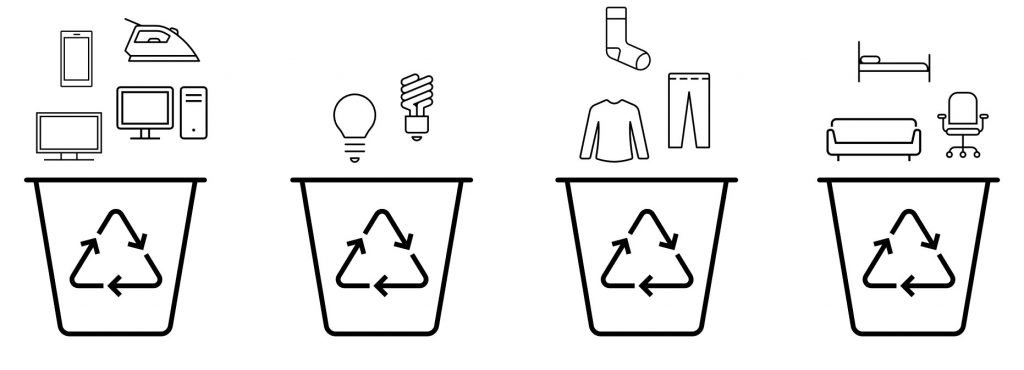
Aline Colonnello
Recycling at KI
Karolinska Institutet has indeed a very impressive waste management system! I think this is something that for us students is usually not very relevant or we do not even have information about it, but I am convinced that it is always important to know how recycling works at your own school.
KI has the infrastructure to adequately handle a wide and specific variety of waste such as combustible waste (old books), recovered paper (office paper, newspaper), confidential waste, corrugated cardboard, plastic packaging (bottles, bags, cellophane), PANT containers (in this case KI donates the money to charity!), transparent glass, colored glass, light sources (bulbs, lamps), fluorescent tubes, electronics (cell-phones, computers), metals (cans, aluminum folio), lithium batteries, toners and old furniture.
In addition, every building of each KI campus, including the Hospitals, has containers for paper, magazines/Journals, plastic and organic or non recyclable waste. So, there are no excuses for not recycling correctly! ?
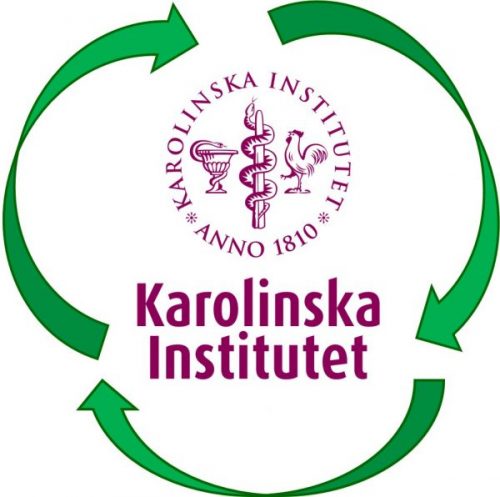
Aline Colonnello
If you want to read more on waste management at KI follow the link: https://staff.ki.se/waste-management
As concluding remark, proper recycling is very important for contributing to a cleaner and more sustainable environment. Also, waste that is not correctly recycled will end up incinerated. As a consequence, this will contribute to increased pollution and CO2 levels.
I would like to acknowledge my friend Jessica Linder for creating the content of this very interesting blog together with me.
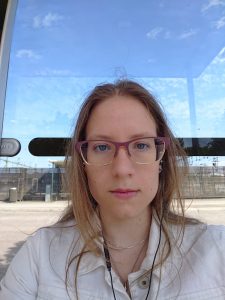
Jessica Linder
I hope you enjoyed this blog and if you want to know more about sustainability at KI or more on this course, don´t hesitate and contact me!
Aline Colonnello
gloria.aline.colonnello.montero@stud.ki.se
Aline Colonnello - Toxicology
My name is Aline Colonnello Montero, I am twenty five years old and I come from the wonderful but busy Mexico City. I consider myself to be a perseverant person who works hard to meet all my goals and ambitions. I have a bachelor’s degree in Biology and I currently study the Master’s programme in Toxicology at Karolinska Institutet. My job as part of the digital ambassadors’ team consists on writing blogs

0 comments